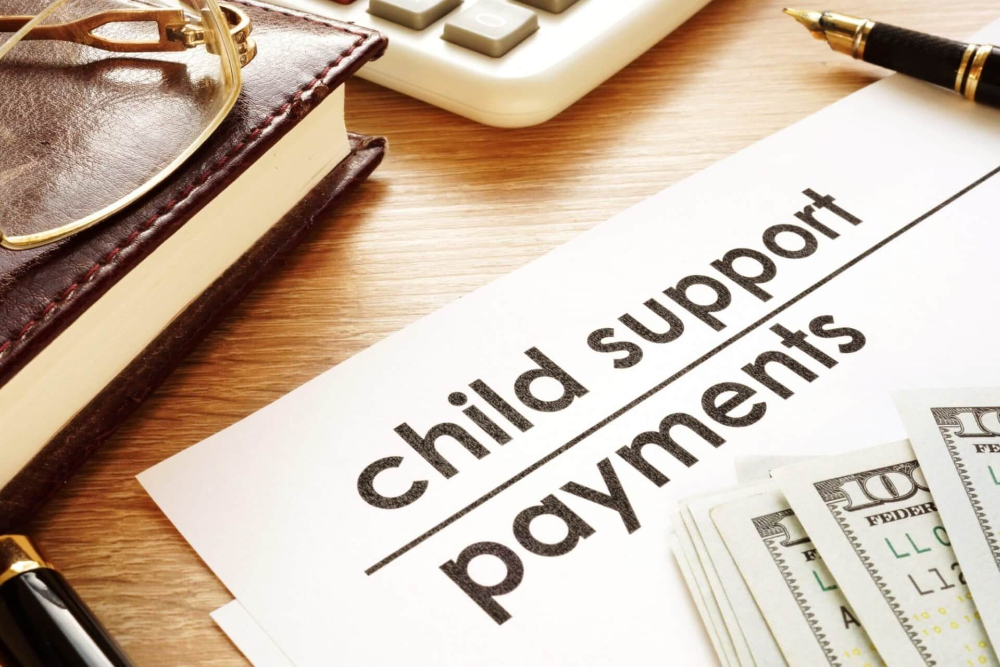Navigating the complexities of child support can be challenging, especially for parents who find themselves without a job. In Florida, the legal framework surrounding child support is designed to ensure that children receive the financial support they need, regardless of the parent’s employment status. This article aims to clarify the rules and expectations regarding child support obligations for those who are unemployed in Florida.
The Foundation of Child Support in Florida
Child support in Florida is mandated by law and is intended to provide for the welfare of children. The state employs specific guidelines to determine the amount of support owed, which takes into account various factors, including the income of both parents, the needs of the child, and other relevant expenses.
Key Factors Influencing Child Support
-
- Income of Both Parents: The income levels of both parents are critical in calculating the child support amount. This includes wages, bonuses, and other forms of income.
- Child’s Needs: The specific needs of the child, such as educational expenses and healthcare costs, are factored into the support calculation.
- Custodial Arrangements: How much time each parent spends with the child can also influence the support amount.
Legal Framework
Florida’s child support guidelines are established in accordance with state law, which means that courts have the authority to enforce these obligations. Parents are legally required to provide financial support, and failure to do so can result in severe penalties.
Impact of Unemployment on Child Support Obligations
When a parent loses their job, it does not automatically exempt them from their child support responsibilities. In fact, many parents mistakenly believe that being unemployed means they will not have to pay child support, but this is not the case in Florida.
Imputed Income
In situations where a parent is unemployed, the court may impute income based on several factors, including:
-
- Minimum Wage: If a parent does not provide sufficient financial documentation, the court may assume they can earn at least the minimum wage.
- Previous Earnings: Courts often look at a parent’s past income to determine their earning potential. This can include tax returns and pay stubs from previous jobs.
- Intentional Underemployment: If the court suspects that a parent is intentionally not working or is underemployed to avoid paying support, they may assign a higher income level.
The Role of Documentation
To accurately assess child support obligations, both parents are required to submit financial documents. This can include:
-
- Pay stubs
- Tax returns
- Bank statements
- Proof of expenses related to the child
Failure to provide this information can lead to unfavorable outcomes for the unemployed parent.
Modifying Child Support Orders Due to Job Loss
If a parent loses their job and can no longer meet their child support obligations, they have the right to petition the court for a modification of their support order.
Steps to Request a Modification
-
- Gather Documentation: Collect any relevant documents that demonstrate the change in financial circumstances, such as termination letters or unemployment benefits.
- File a Petition: Submit a formal request to the court to modify the child support order. This typically involves filling out specific forms and providing evidence of the job loss.
- Attend a Hearing: The court may schedule a hearing to review the evidence and determine if a modification is warranted.
Temporary vs. Permanent Modifications
-
- Temporary Modifications: These adjustments may be granted for a limited time, allowing the parent to regain employment without facing penalties.
- Permanent Modifications: If the loss of income is expected to be long-term, the court may grant a more permanent change to the child support order.
Consequences of Non-Payment
Failing to pay child support can lead to serious legal repercussions, even if the non-payment is due to unemployment. Parents should be aware of the potential consequences they may face.
Legal Penalties
-
- Wage Garnishment: Courts can order that child support payments be deducted directly from a parent’s paycheck once they are employed again.
- Driver’s License Suspension: Non-payment can result in the suspension of the parent’s driver’s license, making it more challenging to find work.
- Contempt of Court: In severe cases, a parent may be held in contempt of court, which can lead to fines or even jail time.
Importance of Communication
Maintaining open communication with the other parent and the court can help mitigate some of these consequences. If a parent is struggling to meet their obligations, they should proactively inform the court and seek a modification rather than ignoring the issue.
Child Support Guidelines and Calculations
Florida utilizes specific guidelines to calculate child support obligations, which are designed to ensure fairness and equity based on the financial circumstances of both parents.
The Calculation Process
-
- Determine Gross Income: The first step is to assess the gross income of both parents, including any imputed income if one parent is unemployed.
- Assess Child-Related Expenses: This includes healthcare, childcare, and educational expenses that may need to be covered by child support.
- Use the Child Support Guidelines Worksheet: Florida provides a standardized worksheet to help calculate the appropriate support amount based on the combined income of both parents.
Example Calculation
| Income Source | Parent A | Parent B | Combined Income |
|---|---|---|---|
| Salary | $3,000 | $2,000 | $5,000 |
| Bonuses | $500 | $300 | $800 |
| Imputed Income (if applicable) | $1,200 | $0 | $1,200 |
| Total Income | $4,700 | $2,300 | $7,000 |
This table illustrates how combined income is calculated, which is essential for determining child support obligations.
The Importance of Seeking Legal Assistance
Understanding child support laws and navigating the court system can be overwhelming, especially for those who are unemployed. Seeking legal assistance can provide clarity and ensure that parents are aware of their rights and obligations.
Benefits of Hiring a Lawyer
-
- Expert Guidance: An attorney specializing in family law can offer valuable insights into the child support process and help parents understand their options.
- Representation in Court: Having legal representation can significantly impact the outcome of a child support modification hearing.
- Negotiation Skills: Lawyers can negotiate on behalf of their clients to reach a fair agreement regarding child support obligations.
Finding the Right Attorney
When looking for a family law attorney in Florida, consider the following:
-
- Experience: Look for an attorney with a proven track record in child support cases.
- Reputation: Check reviews and testimonials from previous clients.
- Consultation: Many attorneys offer free consultations, which can help parents assess their options without financial commitment.
Resources for Unemployed Parents
Florida provides various resources to assist parents who are unemployed and struggling to meet their child support obligations.
State Assistance Programs
-
- Unemployment Benefits: Parents can apply for unemployment benefits through the Florida Department of Economic Opportunity to help bridge the gap during job loss.
- Job Placement Services: Many local organizations offer job placement services and training programs to help individuals find new employment opportunities.
Support Groups and Counseling
-
- Parent Support Groups: Connecting with other parents facing similar challenges can provide emotional support and practical advice.
- Financial Counseling: Seeking financial counseling can help parents manage their finances during difficult times and plan for future obligations.
Understanding Rights and Responsibilities
It is crucial for parents to understand their rights and responsibilities regarding child support, especially when facing unemployment.
Rights of the Non-Custodial Parent
-
- Right to Request Modifications: Non-custodial parents have the right to request modifications to their support obligations based on changes in their financial situation.
- Right to Fair Representation: Parents are entitled to legal representation and should not hesitate to seek help if they feel their rights are being violated.
Responsibilities of the Non-Custodial Parent
-
- Obligation to Pay Support: Regardless of employment status, parents are generally required to fulfill their child support obligations.
- Duty to Communicate: Maintaining open lines of communication with the other parent and the court is essential to avoid misunderstandings and legal issues.
Akilah Harris Can Help You With Support Orders
While a loving and stable environment is essential for the growth and development of a child, financial support also plays a vital role. Parents must provide financially for children regardless of the relationship status of the parents.
> Learn More
Understanding child support obligations while unemployed can be complex, but it is essential for the well-being of the child. Parents must stay informed about their rights and responsibilities and actively seek modifications if their financial situation changes. By following the proper legal channels and seeking assistance when needed, parents can navigate the challenges of child support in Florida effectively.
Contact (954-451-0050) Akilah Harris, PLLC for a Consultation!
—
![]()
 Are you going through a divorce or trying to retain custody of your child? Do you need help with Estate Planning? Maybe you need help with something else that involves your family? At Akilah Harris PLLC., we understand that family law cases are uniquely stressful and often take a heavy emotional toll on families. Our family law offices offer compassionate and thorough legal counsel to our clients. Consult with us when you need to protect your finances, assets, and time with your child. In these highly personal disputes, you need to rely on an experienced Broward County Attorney who knows how to defend your rights.
Are you going through a divorce or trying to retain custody of your child? Do you need help with Estate Planning? Maybe you need help with something else that involves your family? At Akilah Harris PLLC., we understand that family law cases are uniquely stressful and often take a heavy emotional toll on families. Our family law offices offer compassionate and thorough legal counsel to our clients. Consult with us when you need to protect your finances, assets, and time with your child. In these highly personal disputes, you need to rely on an experienced Broward County Attorney who knows how to defend your rights.
